★★★
“Back in black”
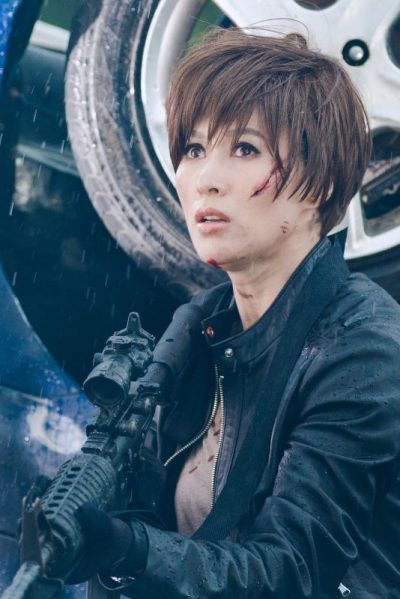 “Guess who’s back, back again. Jadey’s back, tell a friend…” Okay, that’s as close as you’re ever going to get as a rap from me. But I was genuinely delighted to see this stared Jade Leung, who was perhaps the final top-tier member of the Hong Kong Girls With Guns club. I thought she had gone the way of Cynthia Khan and Yukari Oshima, vanishing off the radar entirely. It turns out, she had been making TV series and stuff. Leung returned to big-scale movies in 2016’s Special Female Force (review coming in due course), and followed up with this. It was, apparently, originally intended as a sequel to Force, though that notion appears to have quietly been forgotten, perhaps due to SFF‘s less than stellar box-office returns.
“Guess who’s back, back again. Jadey’s back, tell a friend…” Okay, that’s as close as you’re ever going to get as a rap from me. But I was genuinely delighted to see this stared Jade Leung, who was perhaps the final top-tier member of the Hong Kong Girls With Guns club. I thought she had gone the way of Cynthia Khan and Yukari Oshima, vanishing off the radar entirely. It turns out, she had been making TV series and stuff. Leung returned to big-scale movies in 2016’s Special Female Force (review coming in due course), and followed up with this. It was, apparently, originally intended as a sequel to Force, though that notion appears to have quietly been forgotten, perhaps due to SFF‘s less than stellar box-office returns.
She plays Madam Fong, who was part of a botched clandestine operation by Hong Kong police in nineties Macao, which led to several deaths. However, due to the off-book nature of the op, this means no compensation could be paid to the officers’ families. This has sat very badly with another party to the operation, Inspector Tam (Tam), over the decades since. Finally, he gets the chance to do something, as Fong, along with policewoman Alma (Ho) and Interpol agent Zi Han (Lin) are sent to Macao to protect a high-ranking Hong Kong official. They come under target from a group of drug-crazed anarchists… yet there may be more going on to this than meets the eye.
It’s all kinda okay. The action sequences are solid, starting with a stakeout which turns hyper violent, and building through some severely intense gun-battles. There is also some flippy, spinny stuff which looks like a cross between lucha libre and MMA, and is rather impressive. The problem is mostly the stuff between the action, with a plot that doesn’t really make much sense, and characters that I frequently had trouble distinguishing from each other. Admittedly, the latter may partly be a result of the story’s failure to hold my interest. By the end, I was more or less checked out, only truly paying attention when the sound of gunfire brought me back in. To the film’s credit, there was quite a lot of that, and some seriously heavy weaponry to boot.
It was quite easy to see how it could have been a sequel to Special Female Force. That similarly opened with a mission that went savagely wrong, and also had a character who was the daughter of someone killed in the incident. But it definitely has a less comedic tone, veering considerably closer to the “heroic bloodshed” sub-genre. I must confess, it did get a bonus half-star for the very last shot, which, out of nowhere, promised a potential reboot of the Black Cat franchise. I likely got considerably more excited about that, than anything else this had to offer. Still, it was just nice to see Leung again, almost regardless of quality.
Dir: Jacky Lee
Star: Jade Leung, Patrick Tam, Jeana Ho, Lin Min-chen





 I was initially a bit concerned this was going to be a slightly-more horror oriented version of Harry Potter, based largely off the title. I needn’t have been worried. For at least the first two books, this is quite startlingly dark and on the razor’s edge. As for the third… well, we’ll get to it. The setting here is a world where Filipino shapeshifters called aswangs, which feed on the fear of their victims, are migrating across from their home country and through Alaska. Lined up to stop them, by any means necessary, are hunters; it’s a harsh and often brief occupation. To replace those lost in battle, the titular establishment exists on Kodiak Island, to train hunters – mostly members of families who have been in the bloody business for generations.
I was initially a bit concerned this was going to be a slightly-more horror oriented version of Harry Potter, based largely off the title. I needn’t have been worried. For at least the first two books, this is quite startlingly dark and on the razor’s edge. As for the third… well, we’ll get to it. The setting here is a world where Filipino shapeshifters called aswangs, which feed on the fear of their victims, are migrating across from their home country and through Alaska. Lined up to stop them, by any means necessary, are hunters; it’s a harsh and often brief occupation. To replace those lost in battle, the titular establishment exists on Kodiak Island, to train hunters – mostly members of families who have been in the bloody business for generations.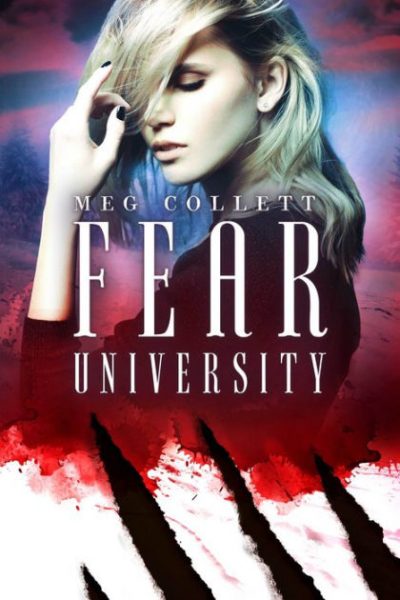 Those opening two books keep the story going forward. In the first volume, Fear University, she learns to tap into the power her talent gives her; builds a relationship with the similarly-broken young hunter Luke, who is her mentor; discovers aswang saliva can make her feel pain; finds out who her father was; and has to go through a life-or-death test involving both her, and her best friend at FU, Sunny. The second, Killing Season, is a rather drastic change in approach, with Ollie, Luke and others sent north to Barrow for the winter break, when the aswang are most active. That was the location used for vampire action film 30 Days of Night, and serves the same kind of purpose here. However, it’s almost as much a whodunnit, with the large house which is the hunters’ base apparently home to a killer. Not helping matters: Max shows up in town.
Those opening two books keep the story going forward. In the first volume, Fear University, she learns to tap into the power her talent gives her; builds a relationship with the similarly-broken young hunter Luke, who is her mentor; discovers aswang saliva can make her feel pain; finds out who her father was; and has to go through a life-or-death test involving both her, and her best friend at FU, Sunny. The second, Killing Season, is a rather drastic change in approach, with Ollie, Luke and others sent north to Barrow for the winter break, when the aswang are most active. That was the location used for vampire action film 30 Days of Night, and serves the same kind of purpose here. However, it’s almost as much a whodunnit, with the large house which is the hunters’ base apparently home to a killer. Not helping matters: Max shows up in town.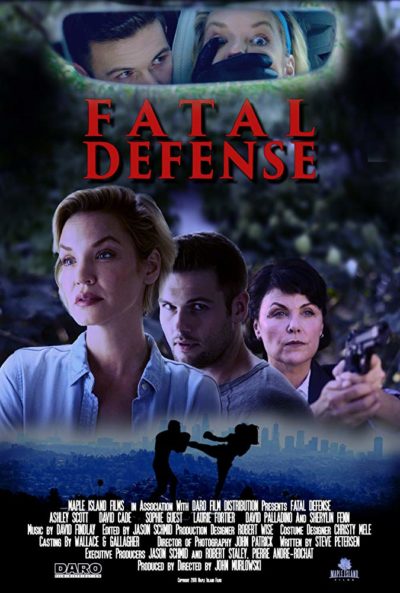 Single mother Arden Walsh (Scott) and her daughter Emma (Guest) are traumatized by a home invasion, and at the insistence of mom’s cop sister, Gwen (Fortier), Arden signs on for a self-defense class given by the hunky Logan Chase (Cade). He’s a bit… intense, shall we say. Despite some initial bonding over their ex-marriedness, it’s not too long before Arden discovers his methods leave “unconventional” lying in the dust. Probably about the point where he zip-ties Arden and tosses her in the trunk of his car. At this stage, she decides to forego further classes. Except, Logan is having none of it, and even teams up with the original burglar to put Arden through further “training”.
Single mother Arden Walsh (Scott) and her daughter Emma (Guest) are traumatized by a home invasion, and at the insistence of mom’s cop sister, Gwen (Fortier), Arden signs on for a self-defense class given by the hunky Logan Chase (Cade). He’s a bit… intense, shall we say. Despite some initial bonding over their ex-marriedness, it’s not too long before Arden discovers his methods leave “unconventional” lying in the dust. Probably about the point where he zip-ties Arden and tosses her in the trunk of his car. At this stage, she decides to forego further classes. Except, Logan is having none of it, and even teams up with the original burglar to put Arden through further “training”.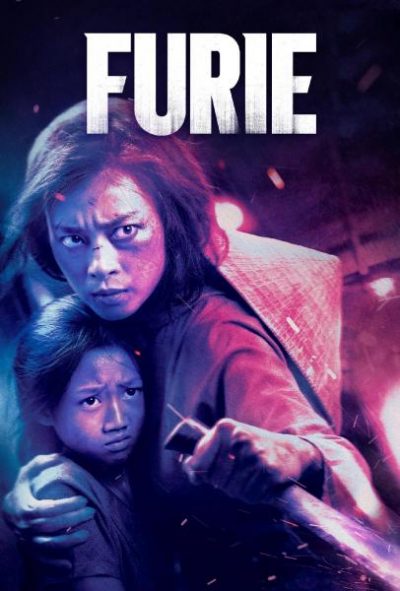 We’ve seen Ngo, the star here, previously on this site in
We’ve seen Ngo, the star here, previously on this site in 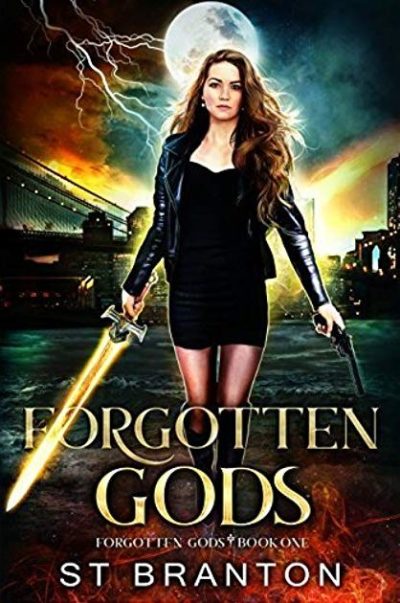 Vic Stratton
Vic Stratton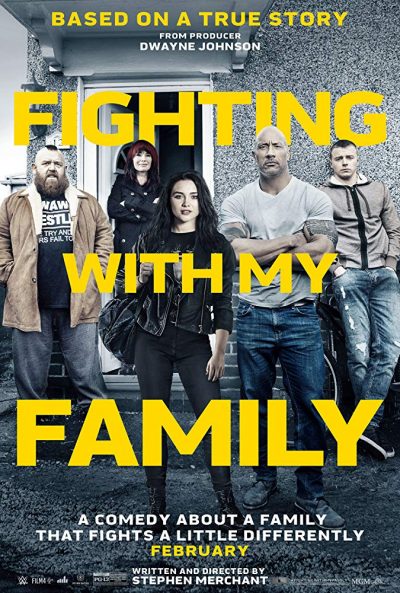 This biopic of WWE Women’s Champion Paige, a.k.a. Saraya Knight from the English seaside town of Norwich, gets a lot of things right about professional wrestling. In particular, it strikes a good balance between the various aspects – positive and negative – of the sports entertainment business. Over the past twenty years, Chris and I have been intermittently involved with the independent end of the wrestling scene, like Knight and her family, and this captures the low-rent showbiz aspects beautifully. Yet it doesn’t shortchange the seductive – almost addictive – appeal of performance for a responsive crowd, or the potential escape from a drab life it offers someone like Saraya/Paige.
This biopic of WWE Women’s Champion Paige, a.k.a. Saraya Knight from the English seaside town of Norwich, gets a lot of things right about professional wrestling. In particular, it strikes a good balance between the various aspects – positive and negative – of the sports entertainment business. Over the past twenty years, Chris and I have been intermittently involved with the independent end of the wrestling scene, like Knight and her family, and this captures the low-rent showbiz aspects beautifully. Yet it doesn’t shortchange the seductive – almost addictive – appeal of performance for a responsive crowd, or the potential escape from a drab life it offers someone like Saraya/Paige.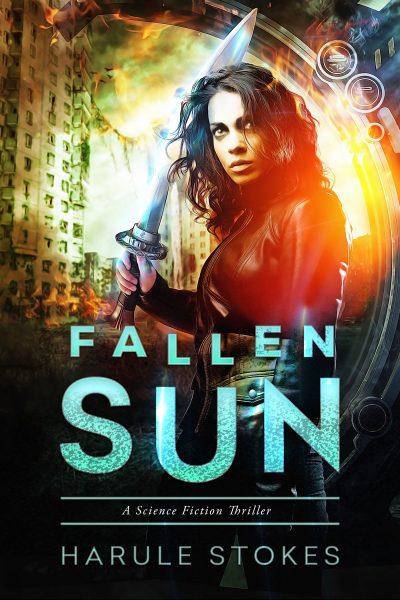 While not perfect, I think this one will probably end up sticking in my mind longer than most of the books I read. For one, it helps being a stand-alone and complete work, rather than the first of a multi-volume set. While I understand the rationale behind the latter – that’s where the bread and butter of writing income is made – it was refreshing to get a beginning, middle and proper end, without a cliff-hanger or opening for sequels. It was also different in content, rather than being yet another book which drops fantasy creatures like elves or vampires in a contemporary setting. I’ve seen enough of those this year, thankyouverymuch.
While not perfect, I think this one will probably end up sticking in my mind longer than most of the books I read. For one, it helps being a stand-alone and complete work, rather than the first of a multi-volume set. While I understand the rationale behind the latter – that’s where the bread and butter of writing income is made – it was refreshing to get a beginning, middle and proper end, without a cliff-hanger or opening for sequels. It was also different in content, rather than being yet another book which drops fantasy creatures like elves or vampires in a contemporary setting. I’ve seen enough of those this year, thankyouverymuch.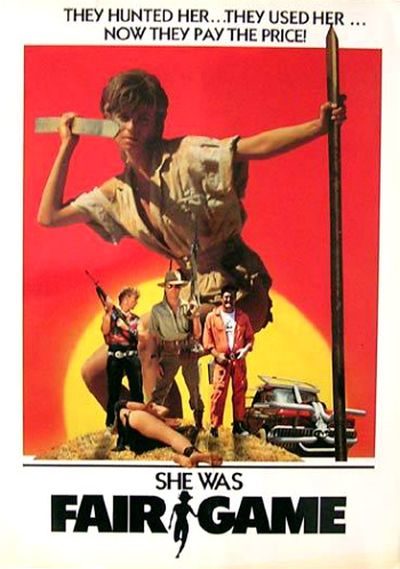 First off, this is not to be confused with the other Australian film of the eighties
First off, this is not to be confused with the other Australian film of the eighties  The handling of this story is a little different from the usual novel. Julien adopts an “episodic” approach, with the story initially released in novella-length installments (seven of which have come out to the point of writing), some with cliffhangers. In structure, this is almost like the
The handling of this story is a little different from the usual novel. Julien adopts an “episodic” approach, with the story initially released in novella-length installments (seven of which have come out to the point of writing), some with cliffhangers. In structure, this is almost like the  Oh, dear. A misbegotten concept – Sweet Home Alabama crossed with Rocky – doubles down with shaky execution, and a non-stop parade of painfully obvious cliches in both characters and plot, to startlingly poor effect. As evidence of the first, imagine a film about a man, dumped by his girlfriend, who decides that beating her up is appropriate revenge. This would not exactly be anyone’s idea of comedy gold. But the makers here think that, simply by reversing the genders, it becomes so. They are very much mistaken. I believe I laughed once.
Oh, dear. A misbegotten concept – Sweet Home Alabama crossed with Rocky – doubles down with shaky execution, and a non-stop parade of painfully obvious cliches in both characters and plot, to startlingly poor effect. As evidence of the first, imagine a film about a man, dumped by his girlfriend, who decides that beating her up is appropriate revenge. This would not exactly be anyone’s idea of comedy gold. But the makers here think that, simply by reversing the genders, it becomes so. They are very much mistaken. I believe I laughed once.